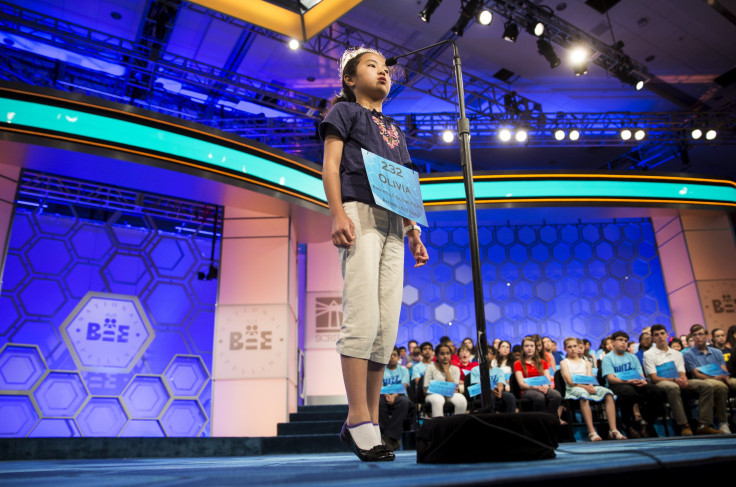National Spelling Bee 2015: Facts, History And Past Final Words From The Scripps Contest

Thursday marks the finals of the 88th annual Scripps National Spelling Bee. The final contestants, six boys and four girls between the ages of 12 and 14, are ready -- but are you? Make sure you start watching the show (8 p.m. EDT on ESPN) armed with all the facts and figures about the event.
The National Spelling Bee started in 1925, according to the history page on its website, and newspaper publishing company Scripps (now a broadcasting company) became the sponsor 16 years later. The competition's first live TV broadcast took place in 1946, and since then it's grown in popularity. In 2012, more than 1 million viewers tuned in.
The first-ever National Spelling Bee champion was Frank Neuhauser, who won with the word "gladiolus" in 1925, the Washington Post reported.
Last year was one of only four times in history that the spelling bee has declared co-champions. Sriram Hathwar, then an eighth-grader from New York, and Ansun Sujoe, then a seventh-grader from Texas, won by spelling "stichomythia" and "feuilleton," respectively. The last time co-champions won the bee had been in 1962, according to the event's website.
Other final words -- and their definitions, taken from the Merriam-Webster website -- include:
- "appoggiatura,"defined as "an embellishing note or tone preceding an essential melodic note or tone and usually written as a note of smaller size" (2005)
- "Ursprache," defined as "a parent language; especially one reconstructed from the evidence of later languages" (2006)
- "serrefine," or "a small forceps for clamping a blood vessel" (2007)
- "guerdon," meaning "reward" (2008)
- "Laodicean," defined as "lukewarm or indifferent in religion or politics" (2009)
- "stromuhr," defined as "a rheometer designed to measure the amount and speed of blood flow through an artery" (2010)
- "cymotrichous," meaning "having wavy hair" (2011)
- "guetapens," or "a trap" (2012)
- "knaidel," meaning "matzo ball" (2013)
This year's competitors were 48.9 percent boys and 51.2 percent girls, according to the bee's statistics page. Most were public school students in the eighth grade. One girl, Vanya Shivashankar, has competed for the past four years.
The winner gets $30,000 and a trophy from Scripps, as well as $5,000 from Words With Friends, a $2,500 savings bond from Merriam-Webster and reference books from Encyclopedia Brittanica, the Guardian reported.
© Copyright IBTimes 2025. All rights reserved.






















